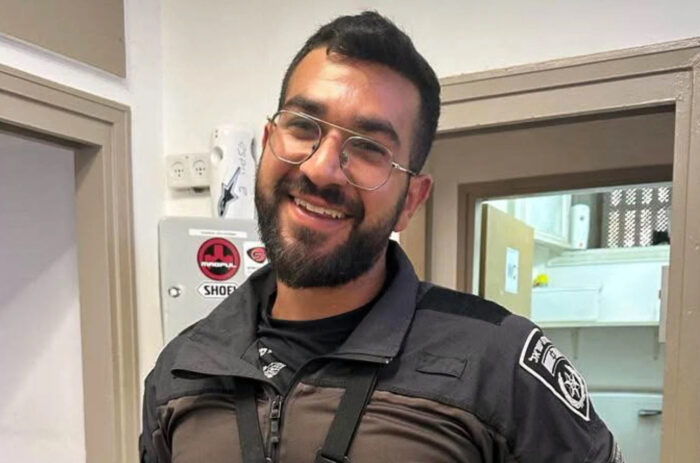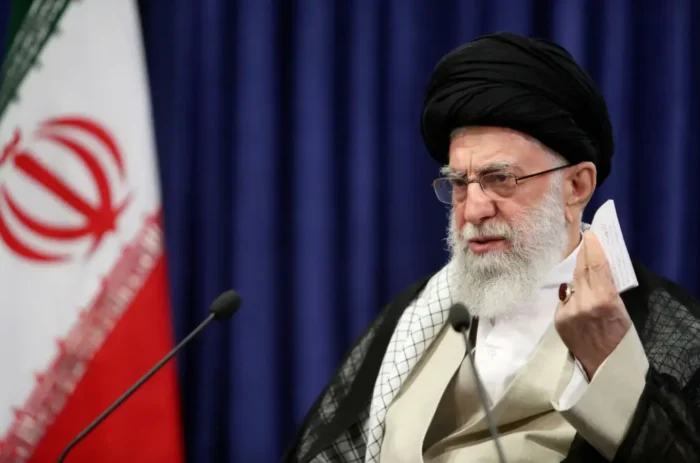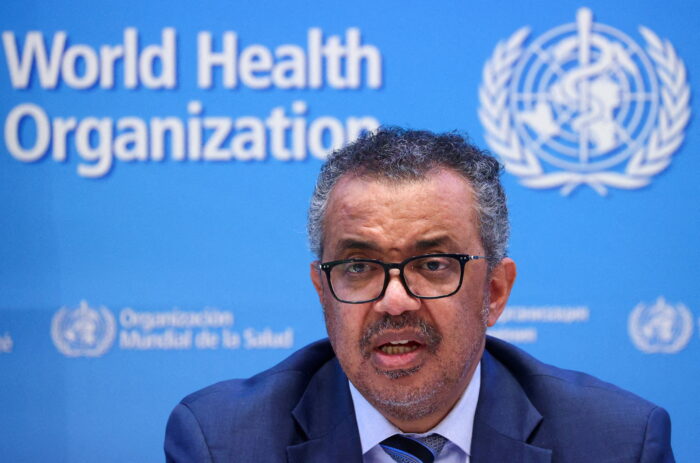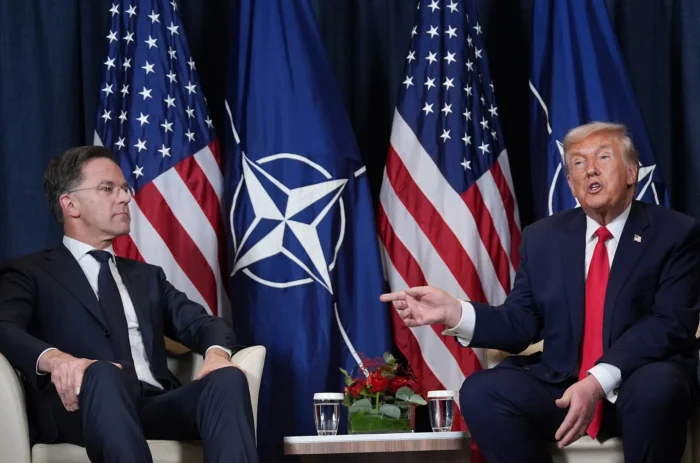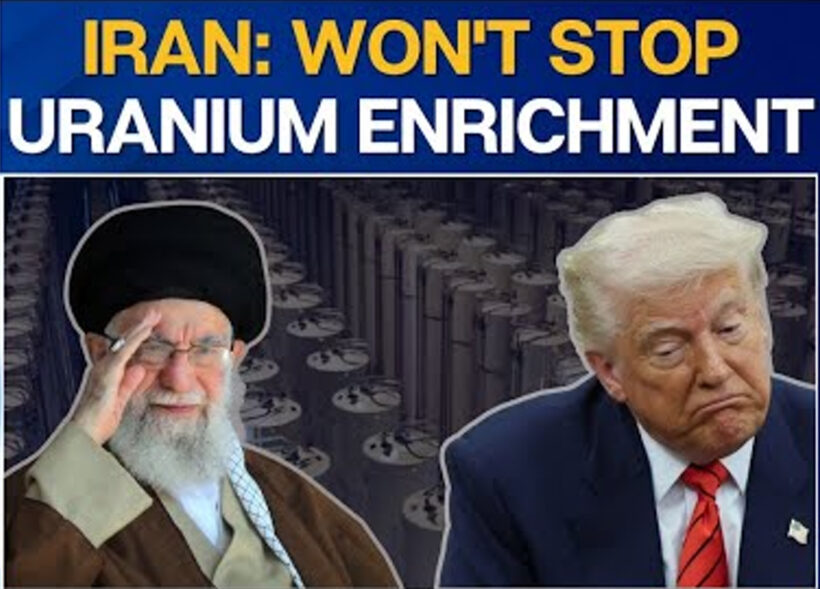
redo Jump to...
print Print...
(by Ronny Reyes, NY Post) – Iran’s foreign minister said Tehran will continue its uranium enrichment program regardless of whether a nuclear deal with the US is reached — just hours after the Trump administration slammed any form of enrichment as a “red line.”
Foreign Minister Seyed Abbas Araghchi said US officials were free to say whatever they wanted on TV, but Iran will never deviate from its goal of enriching uranium, which Tehran insists is meant for nuclear energy plants rather than bombs. [This is widely believed to be untrue].
“If the U.S. is interested in ensuring that Iran will not have nuclear weapons, a deal is within reach, and we are ready for a serious conversation to achieve a solution that will forever ensure that outcome,” Araghchi wrote on X Sunday. “Enrichment in Iran, however, will continue with or without a deal.”
“Our stance on Iran’s rights as a NPT (Nuclear Non-Proliferation Treaty) member is crystal clear, and there is no scenario in which Iranians will permit deviance from that,” he added.
Araghchi’s comments came just hours after US special envoy to the Middle East Steve Witkoff insisted that any form of enrichment represented a “red line” in the nuclear talks with Iran.
“We have one very, very clear red line, and that is enrichment. We cannot allow even 1% of an enrichment capability,” Witkoff told ABC’s “This Week.”
“Everything begins … with a deal that does not include enrichment … because enrichment enables weaponization, and we will not allow a bomb to get here,” he added.
While [Witkoff] had initially [said] Iran could keep a civilian uranium enrichment program focusing on nuclear energy, President Trump has taken a tough stance against all forms of enrichment since the talks with Iran began.
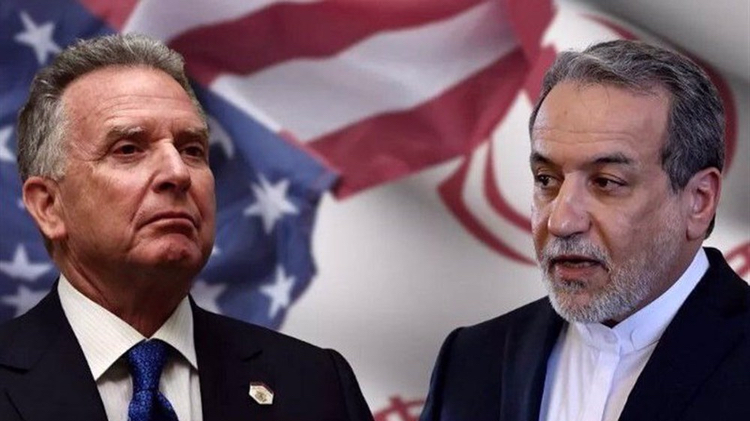 Iran’s refusal to accept that stance is likely to create friction with President Trump, who [said] Friday that Iran was close to accepting his nuclear deal proposal.
Iran’s refusal to accept that stance is likely to create friction with President Trump, who [said] Friday that Iran was close to accepting his nuclear deal proposal.
Trump warned that Tehran had to move quickly to accept the proposal or “something bad is going to happen,” alluding to his previous threats of military action if a deal is not reached.
Trump has previously vowed to bomb Iran’s nuclear facilities if a deal is not reached, a threat that Tehran has repeatedly brushed off.
Iran’s nuclear program has become the subject of worry following warnings from the United Nations’ International Atomic Energy Agency that Iran was growing its enriched uranium stockpile and approaching the threshold needed to achieve nuclear weapons.
Published at NYPost on May 19. Reprinted here for educational purposes only. May not be reproduced on other websites without permission.
Questions
NOTE TO STUDENTS: Before answering the questions, read the “Background” and watch the videos under “Resources”
1. What is wrong with Iran’s uranium enrichment program? (Why are the UN, the EU, the U.S., Israel and many others opposed to Iran’s uranium enrichment program?
2. What did Iran’s foreign minister state about the country’s uranium enrichment program as Iran is in the midst of negotiations with the U.S.?
3. How do Mr. Araghchi’s assertions about Iran’s uranium enrichment program contradict those of Steve Witkoff, the Trump administration’s special envoy to the Middle East?
4. What warning did President Trump give Iran if they refuse to give up their pursuit of nuclear weapons?
5. Speaking in Saudi Arabia last week, President Trump said he wants to strike a deal with Iran amid ongoing nuclear talks, but will cripple Iran’s economy if the Islamic Republic “rejects this olive branch.”
“I want to make a deal with Iran. If I can make a deal with Iran, I’ll be very happy if we’re going to make your region and the world a safer place,” Trump said during a foreign policy speech in Riyadh.
“But if Iran’s leadership rejects this olive branch and continues to attack their neighbors, then we will have no choice but to inflict massive maximum pressure [and] drive Iranian oil exports to zero like I did before [in my first term in office],” he said.
“Iran will never have a nuclear weapon. But with that said, Iran can have a much brighter future. This is an offer that will not last forever. The time is right now for them to choose… Things are happening at a very fast pace.”
The president called Iran the “most destructive force” in the Middle East, and blamed the regime for instability across the region.
Offering what he described as both a final warning and a potential opening for diplomacy, he said Iran has a choice between continuing its “chaos and terror” or embracing a path toward peace.
US envoy Steve Witkoff said: “Trump has been very clear: He wants to solve this conflict diplomatically and with dialogue. He’s given all of the signals, he’s directly sent letters to the Supreme Leader… we have one very, very clear red line — and that is enrichment. We cannot allow even 1% of an enrichment capability. We’ve delivered a proposal to the Iranians that we think addresses some of this…”
Iran’s Supreme Leader Ayatollah Ali Khamenei said in a speech on May 17, 2025: “Trump is lying and his statements are not worth a response. Death to America! Death to England! Death to Israel! Death to the infidels!”
One reader responded:
“They [the Trump administration] had to go through the motions diplomatically but Iran wasn’t going to give up their nuclear fuel enrichment program. So when the weather permits we will provide support for the Israeli airstrikes on these facilities, it is what Israel and even Saudi Arabia wanted all along. Hopefully dealing a crushing blow without major collateral human damage will provoke the Iranian people to regime change.”
What do you think: Is Trump naive in trying to negotiate with the Iranians? – Will the Ayatollah give up their nuclear enrichment program, or will Israel and/or the U.S. have to bomb Iran’s nuclear facilities to prevent them from having nuclear weapons?
Background
NOTE ON URANIUM ENRICHMENT: Enriched uranium is a critical component for both civil nuclear power generation and military nuclear weapons. The International Atomic Energy Agency attempts to monitor and control enriched uranium supplies and processes in its efforts to ensure nuclear power generation safety and curb nuclear weapons proliferation (buildup).
IRAN’S NUCLEAR PROGRAM:
- Iran’s 20 year secret nuclear program was discovered in 2002. The Iranian government has always claimed its uranium enrichment program is for energy purposes only, but it has been working on produce high-enriched uranium, used to make nuclear bombs. Iran is the only non-nuclear weapon state to do so. Also, Iran has only built one nuclear power plant in all that time, which generates less than 1% of the country’s electricity.
- Under the United Nations’ NPT (Non Proliferation Treaty) countries are not allowed to make nuclear weapons (except for the 5 that had nuclear weapons prior to the treaty – the U.S., Russia, China, France, the United Kingdom). Iran, along with 190 other UN member countries, signed the treaty.
- Safeguards are used to verify compliance with the Treaty through inspections conducted by the UN’s nuclear watchdog, the IAEA (International Atomic Energy Agency).
- The IAEA has consistently stated it is unable to conclude that Iran’s nuclear program is entirely peaceful.
- The IAEA issued a report on Sept. 15, 2008 that said Iran has repeatedly blocked an investigation into its nuclear program and since then, the U.N. Security Council imposed at least four sets of sanctions on Iran over its nuclear defiance. Despite the sanctions, Iran has refused to end its nuclear program.
- In June 2022, Iran removed IAEA cameras and other monitoring equipment from its nuclear facilities. Then, in September 2023, Iran barred U.N. inspectors from monitoring the country’s nuclear program. These actions were a response to criticism from the IAEA, particularly after the IAEA’s board censured Iran in November 2022 for failing to answer questions about uranium traces found at undeclared sites.
- The Iranian government has called for the destruction of Israel on numerous occasions (and “Death to America” as well). It is believed that once obtained, the Iranian regime would use nuclear weapons against Israel.
Israel has been working to prevent Iran from obtaining nuclear weapons:
- Israel has engaged in covert operations, like the Stuxnet virus attack in 2010, which damaged centrifuges at the Natanz nuclear facility.
- Israel has also carried out military strikes on Iranian nuclear facilities, such as the one at Parchin in late 2024, which is believed to have destroyed a nuclear weapons research facility.
- Israel’s actions, combined with its strong military capabilities, have deterred Iran from openly pursuing a nuclear weapon program.
- Israeli operations have damaged or destroyed key components of Iran’s nuclear program, potentially delaying its progress.
- Iran may have incurred higher costs and resources due to the need to repair or rebuild damaged facilities, hindering its program.
- Israeli actions have created a sense of vulnerability and risk for Iran, potentially discouraging further advancements.
Resources
Ayatollah Ali Khamenei, May 17, 2025, “Trump is lying and his statements are not worth a response. Death to America! Death to England! Death to Israel! Death to the infidels!”:
Steve Witkoff on Iran enrichment, May 18, 2025:
Daily “Answers” emails are provided for Daily News Articles, Tuesday’s World Events and Friday’s News Quiz.
